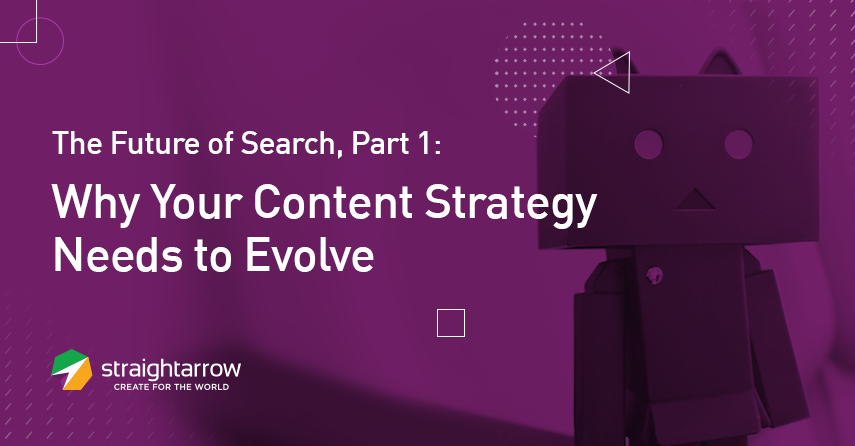
Publishing content to multiple websites simultaneously was once among the quickest ways to boost your search rank. When the Panda update for Google’s search algorithm was released in 2011, however, websites with spam content lost their rankings. The once-prevalent strategy of indiscriminate content distribution stopped working.
Recently, however, decentralized content has been making a comeback, thanks largely to the number of social media and content sharing platforms available.
The rules of SEO, however, have not gone back to what they once were—so businesses seeking to decentralise their content should change their SEO strategies accordingly. Simple content syndication is no longer an option. Optimising decentralised content means more focused customer targeting and building relationships along with links.
Customer Targeting
The main function of decentralising content is to reach broader audiences. Each platform has its limits, after all, so by using more platforms, you can reach more people. As the State of Inbound 2017 report puts it, marketers must adapt to “[the] further diversification of media and how/where people spend their time consuming content,” and to "not only create content, but also target it [at] various platforms."
The slapdash methods of old no longer work. Decentralising content requires deliberately choosing platforms that your potential customers use and adapting to the customs of each of these platforms. Having a ready audience and being able to reach them in ways they’re familiar with are both important in expanding your content strategy.
Your choice of platforms to publish on should be based on credible information. Most social media platforms have analytical tools either built in or available through third parties. Several studies on platform usage exist as well. Even before you publish to a platform, you should know what indicators to look at—and when you’re publishing is in full swing, you should be able to produce and prove ROI.
Link Building Now Means Relationship Building
Building a reputation produces long-term benefits in search rank and traffic, but it relies on things that can’t be done on the page—especially the relationship of your brand with influencers. These influencers have established online identities and follower bases that they've built up over time, so they can throw a lot of weight behind a company’s marketing efforts.
Influencer marketing can provide a significant advantage in thought leadership by providing a solid foothold in a new social media platform. This depends on choosing the right influencer, though: one with a fanbase similar to your target customers, and who excels at engaging them through the conventions of your chosen platform. Influencers also serve as persuasive social proof amid millennial marketing trends showing greater distrust for corporations and conventional advertising and sales techniques.
Platform is a major consideration in this strategy, as it determines both the kind of influencers you’ll be contacting and the kind of content they’ll be working with. Instagram’s influencer demographic, for instance, skews toward young women who are proficient visual communicators; LinkedIn’s influencers are older and publish in prose more, using LinkedIn Pulse or their own blogs and websites. All of these should be accounted for in deciding how these influencers can best contribute to your marketing efforts.
Words of Caution: Duplication, Syndication, and More
Related to content decentralisation is the problem of duplicate content, which intersects with questions on low quality content. Strictly speaking, Google does not penalize duplicate content. Their stance, rather, is that it is their discretion to choose for indexing and ranking—and it so happens that anything similar to content on a separate, more authoritative source is not their top choice.
The first thing to understand is how Google evaluates duplicate content: they have nothing against it, unless it appears that it is meant to deceive or manipulate. Thus, publishing the same content on multiple pages isn’t grounds for punishment. However, it would mean that you’d have two pages competing for ranking with the same terms. It’s something of a self-defeating endeavour.
This can be mitigated by signaling to Google’s crawlers which pages you want them to focus on. Canonical tags are a good way of directing traffic to the page you’d most want at the top of the SERP. Blocking pages from being indexed is another tactic, which is often used for printer-friendly versions of pages. You’re best off optimising the best quality version of your content; conversely, you shouldn’t promote a lower-quality page of the same.
Overall, however, we don't recommend content syndication in the current SEO practice because it treads murky water with Google. Furthermore, multiple versions of the same content will mostly end up competing with each other for traffic. Ultimately, however, what matters most is that your content development team has a clear idea of its objectives and can understand and justify the methods they use to achieve them.
Conclusion
Publishing to different platforms is not a new SEO technique, but its objectives have changed in recent years. Decentralised content strategies now focus on publishing quality content and establishing links with audiences and peers, with the aim of increasing brand recognition and improving website rank and authority—both of which lead to increased traffic in the long run.
Improving your SEO starts from knowing where you stand.











Comments